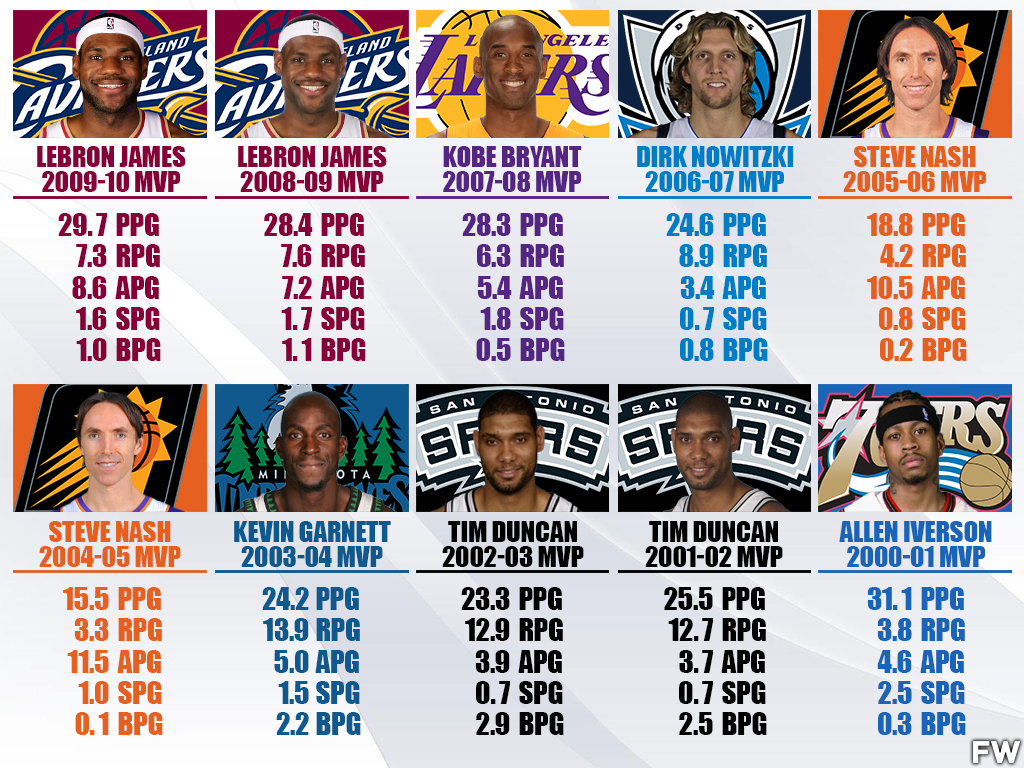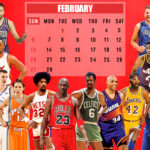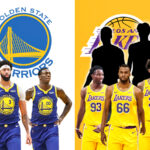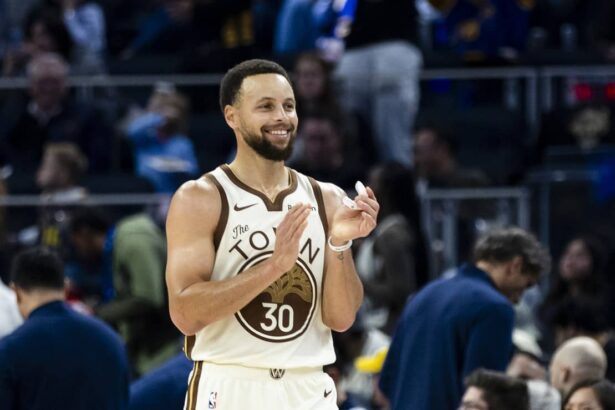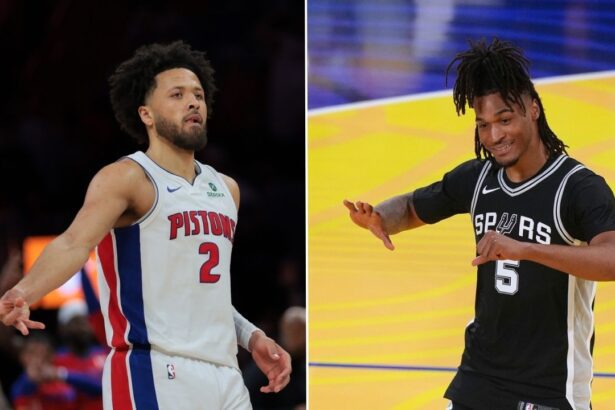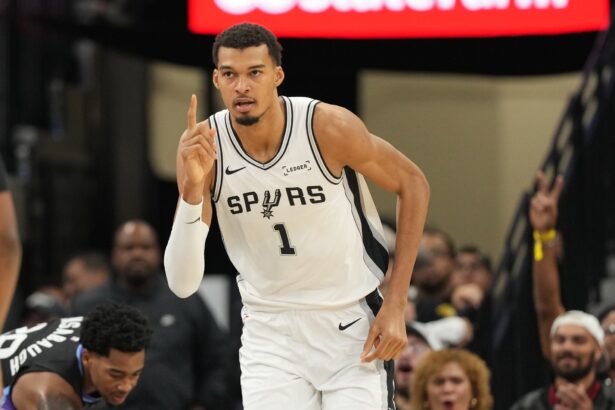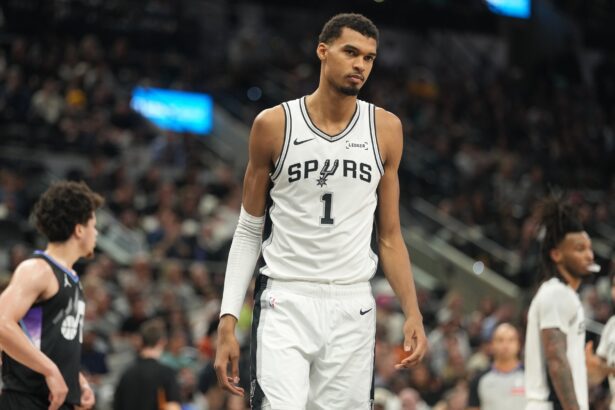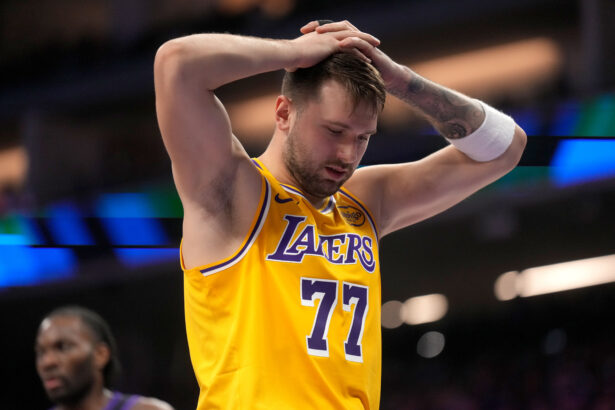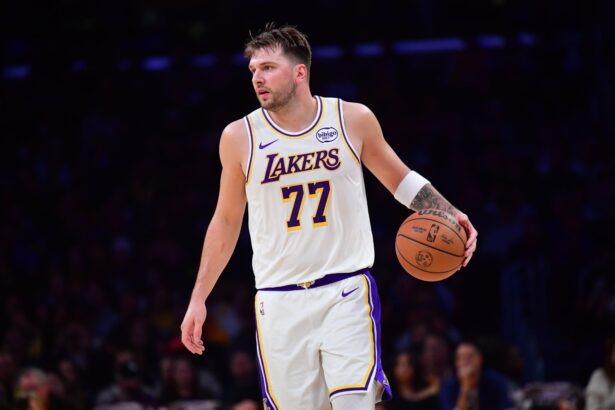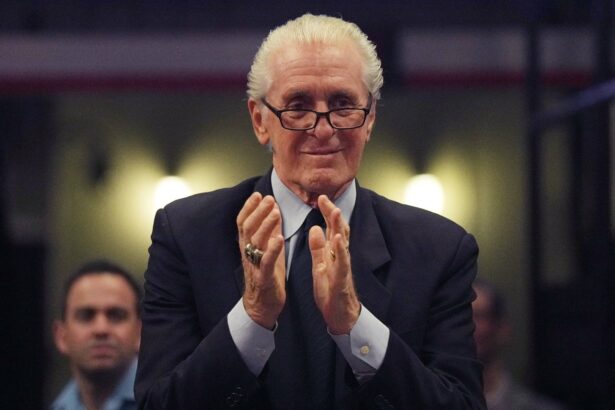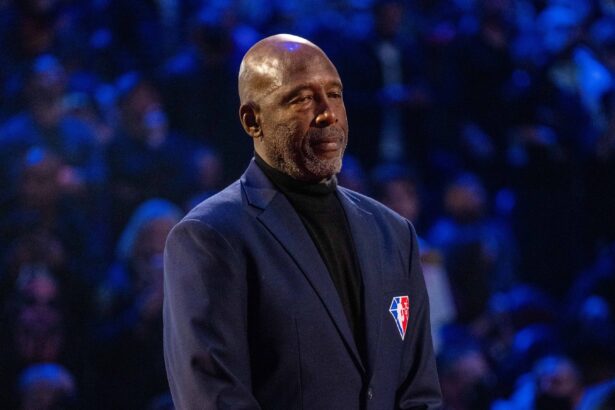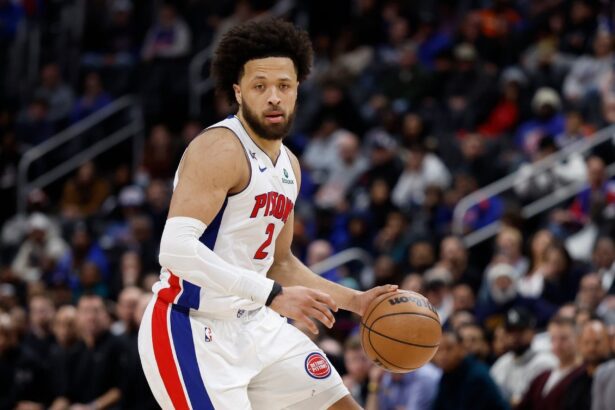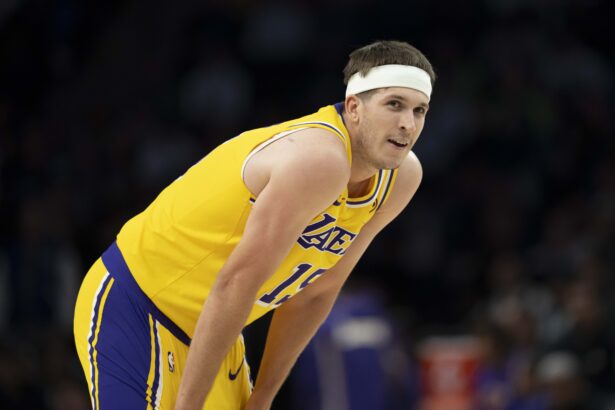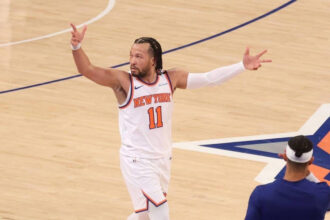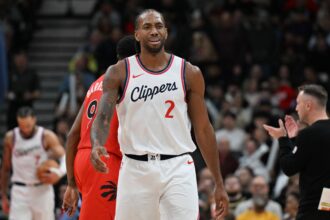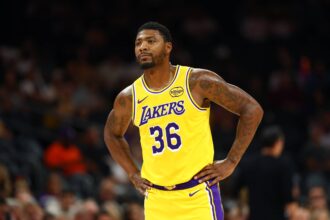The regular season is coming to a close soon, which means that the world will start looking at who was the best player during that time. The MVP Award is given to the most valuable player from the regular season. This year, we saw players like Joel Embiid, Nikola Jokic, and Giannis Antetokounmpo stand out, while others will likely get votes.
- 2001-02 MVP Award Winner – Tim Duncan
- 2002-03 MVP Award Winner – Tim Duncan
- 2003-04 MVP Award Winner – Kevin Garnett
- 2004-05 MVP Award Winner – Steve Nash
- 2005-06 MVP Award Winner – Steve Nash
- 2006-07 MVP Award Winner – Dirk Nowitzki
- 2007-08 MVP Award Winner – Kobe Bryant
- 2008-09 MVP Award Winner – LeBron James
- 2009-10 MVP Award Winner – LeBron James
- Next
- The Last 40 MVP Award Winners: LeBron James Can’t Catch Michael Jordan’s 5 MVP Awards
- 5 Times LeBron James Could Have Won MVP Award: The King Should Own The Most MVPs in NBA History
- The Most Points In A Game Per Decade: Wilt Chamberlain’s 100 Points Will Never Be Broken
- The 10 Greatest NBA Shooting Guards Of The 2000s
- Game 7 Career Stats Comparison: Michael Jordan vs. LeBron James vs. Kobe Bryant
During the 2000s, the center position saw just one player take the award, while it was dominated by guards and some talented forwards. There is a list of Hall of Fame talent with some pretty household names. It’s hard to believe that one player from this list is still in the conversation today.
Here are the MVP winners from 2000 to 2010.
2000-01 MVP Award Winner – Allen Iverson
Stats: 31.1 PPG, 3.8 RPG, 4.6 APG, 2.5 SPG, 0.3 BPG
If Embiid can win the MVP, it will be the first time in over 20 years that a player from the 76ers wins the award. In the 2000-2001 season, Iverson led the 76ers to the NBA Finals in a season that saw him lead the league in points per game with 31.1. Iverson also led the league in steals with 2.5 per game.
What stands out the most was that he also led the league in usage percentage. On offense, Iverson was used 35.9% of the time. The offense truly went through him. Given that he was one of the shortest players in the league, this efficiency, speaks of how great of a player he truly was.
Runner-Up: Tim Duncan
2001-02 MVP Award Winner – Tim Duncan
Stats: 25.5 PPG, 12.7 RPG, 3.7 APG, 0.7 SPG, 2.5 BPG
Duncan had an assortment of titles from this season to win the first MVP of his career. Duncan led the league in total rebounds and defensive rebounds but did not win the rebounding title as that went to Ben Wallace. He also led the league in made field goals, as well as two-point field goals and two-point field goals attempts.
While Jason Kidd had an exceptional season himself, what set Duncan apart from the rest was that he was truly the league’s best offensive player according to the stats. He led the league in total win shares with 17.8, as well as offensive win shares with 10.7. He had the highest value above a replacement player with an 8.0 rating. If you take Duncan off the Spurs this season, the team would not be the same.
Runner-Up: Jason Kidd
2002-03 MVP Award Winner – Tim Duncan
Stats: 23.3 PPG, 12.9 RPG, 3.9 APG, 0.7 SPG, 2.9 BPG
Duncan was one of three players to repeat as MVP during this decade and capped off the MVP with a championship as well. Duncan’s stats sheet was not as filled as it was the previous season. He led the league in winning shares with 16.9 but did not lead the league in anything else. The Spurs did win 60 games and won the league’s best record.
The Spurs won 10 more games than the Pistons, who finished with the No. 1 seed in the East. Duncan finished seventh in points, third in rebounds, and third in blocks. This was no slouch season, especially with his team winning to prove it.
Runner-Up: Kevin Garnett
2003-04 MVP Award Winner – Kevin Garnett
Stats: 24.2 PPG, 13.9 RPG, 5.0 APG, 1.5 SPG, 2.2 BPG
Kevin Garnett made the Timberwolves the best team in the league this season. The team landed the best record in the Western Conference, even better than the Lakers, who were led by Kobe Bryant and Shaquille O’Neal. Garnett had a season to remember as he led the league in total points, total rebounds, and made field goals/attempts.
He won the rebounding title and led the league in two-point field goals and attempts. The advanced metrics were even more impressive. Garnett led the league with a player efficiency rating of 29.4. He also led the league in winning shares with 18.2. He was the league’s best two-way player too, leading the league in defensive box plus/minus, as well as wins above a replacement player with 10.0. We all knew that this was a great year for Garnett, but the numbers make it even more amazing.
Runner-Up: Tim Duncan
2004-05 MVP Award Winner – Steve Nash
Stats: 15.5 PPG, 3.3 RPG, 11.5 APG, 1.0 SPG, 0.1 BPG
Steve Nash was a true maestro on the floor. He led the league in total assists and won the assists title. Amar’e Stoudemire led the league in offensive win shares. The question is what was Stoudemire that great or was he a product of Nash setting him up? For that question, the answer is likely one that helped him land MVP.
With that said, the Suns were a pretty great offensive team with Nash leading the way. He was doing things that Chris Paul did before Chris Paul was ever that great. The stats say that another player could have won, but the dealbreaker was that the Suns won 62 games. With individual and team play combined, Nash was the right choice.
Runner-Up: Shaquille O’Neal
2005-06 MVP Award Winner – Steve Nash
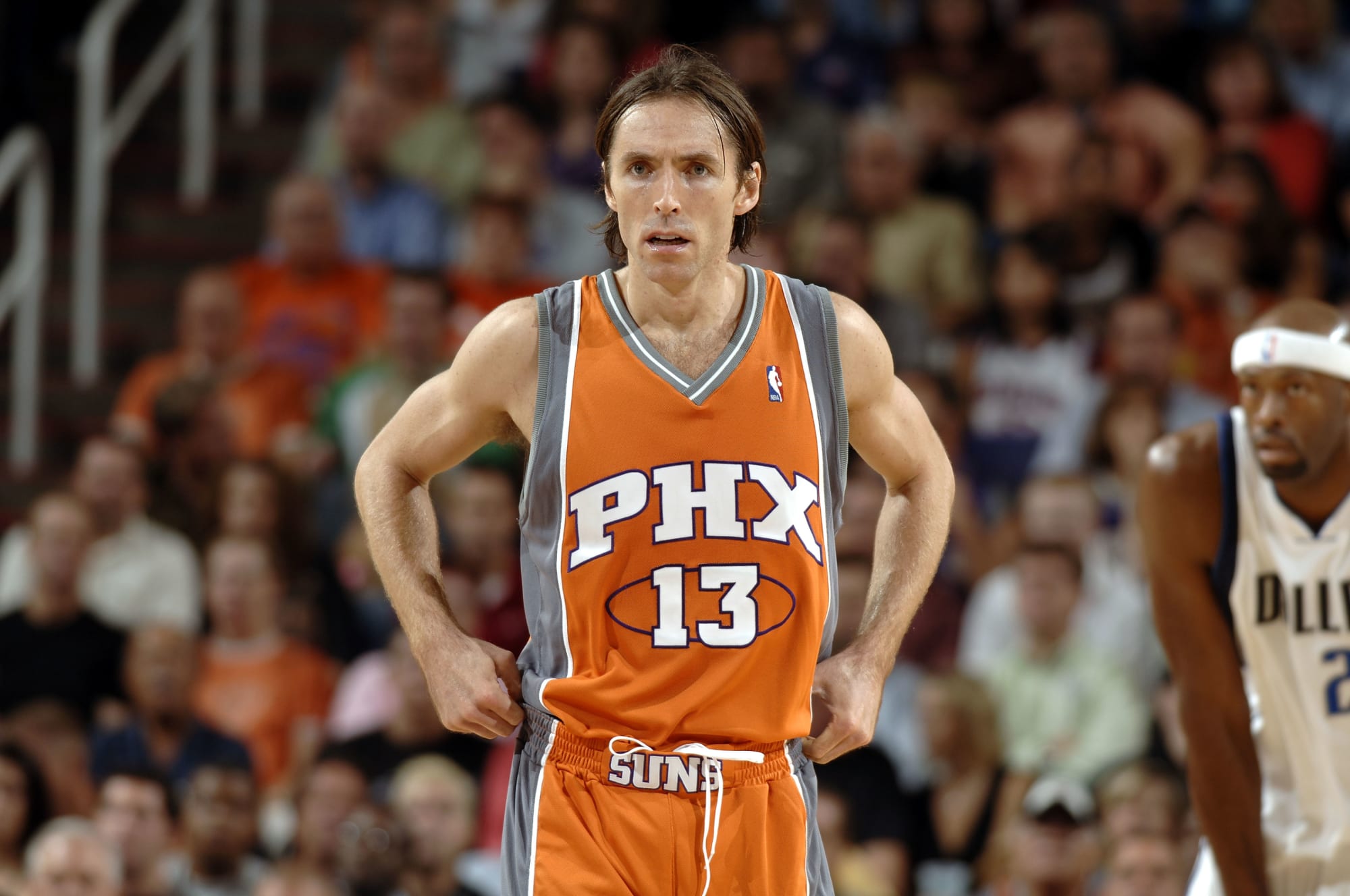
Stats: 18.8 PPG, 4.2 RPG, 10.5 APG, 0.8 SPG, 0.2 BPG
Nash went back to back on MVP Awards and also back to back on winning the assists title. Nash assisted the overall offense 44% of the time. Nash also led the league with his free throw percentage by shooting over 92%. He also led the league with a true shooting percentage of 63.2%.
LeBron James had a pretty solid stat line and could have won this award, especially since the Suns were 11 games back of winning the No. 1 seed. However, Nash finished the season in the 50-40-90 Club. Given how exclusive this club is, it was the ultimate dealbreaker.
Runner-Up: LeBron James
2006-07 MVP Award Winner – Dirk Nowitzki
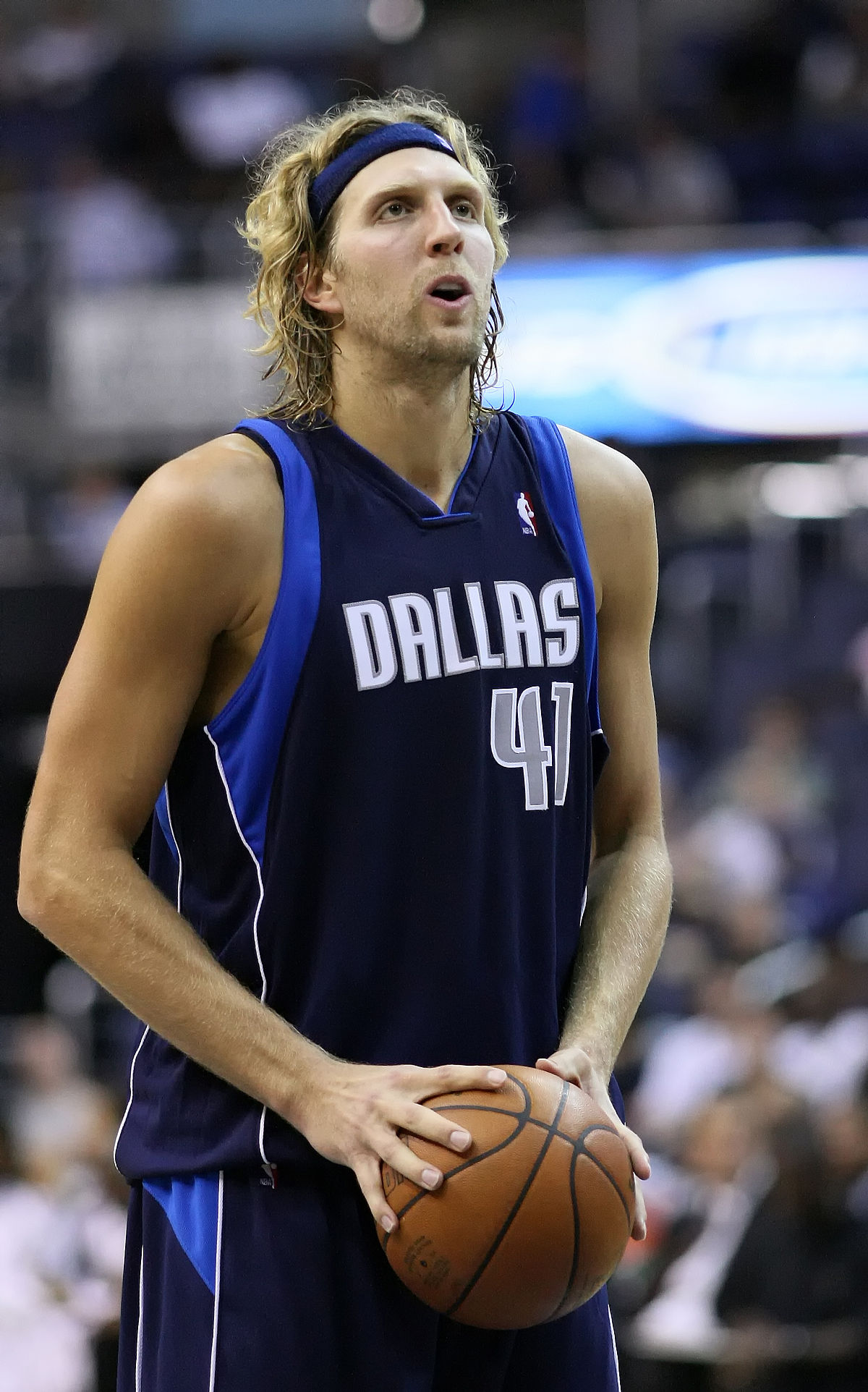
Stats: 24.6 PPG, 8.9 RPG, 3.4 APG, 0.7 SPG, 0.8 BPG
Nowitzki passed the eye test by helping the Mavericks win 67 games and lead the league in wins. He was by far the best player, but it always helps with the advanced metrics backing it up. Despite not leading the league in any of the major categories, he had some other data backing up his MVP Award.
For starters, Nowitzki led the league in win shares with 16.3 and offensive win shares with 11.8. He also led the league in win shares per 48 minutes, box plus/minus, and offensive box plus/minus. Nowitzki is regarded as the best big man shooter of all time. He was the best offensive player of this season.
Runner-Up: Steve Nash
2007-08 MVP Award Winner – Kobe Bryant
Stats: 28.3 PPG, 6.3 RPG, 5.4 APG, 1.8 SPG, 0.5 BPG
This was a special year when you look back on it. Kobe Bryant led the league in total points, while LeBron James won the scoring title. How great is that? At the end of the day, Bryant did enough to claim the award for the best player in the league. Bryant led the league in field goal attempts and field goals missed, but we witnessed greatness this year. It was the first time since Shaq left that Bryant truly led the Lakers as the leader of the team.
The Lakers won 57 games and had the best record in the Western Conference despite a strong push from Chris Paul. Bryant also led the team to the NBA Finals before losing to the Celtics. At the end of the day, Bryant was clutch, consistent, and the best player in the league.
Runner-Up: Chris Paul
2008-09 MVP Award Winner – LeBron James
https://www.youtube.com/watch?v=vd4nr9TURt4
Stats: 28.4 PPG, 7.6 RPG, 7.2 APG, 1.7 SPG, 1.1 BPG
It took long enough to get here, but LeBron James finally added an MVP to his awards list. James had a great season by leading the league in free throws. He was one of the best at getting to the line and converting despite not leading the league in free throw percentage. The advanced metrics also backed up his winning.
He led the league in player efficiency rating with a rating of 31.7. He led the league in winning shares with a towering 20.3. The Cavaliers would have won 20 fewer games had James not played, which is saying something considering that the team won the East with 66 wins. Among his other stats that popped up, this was the most eye-popping. Again, it’s a shame we didn’t see Bryant and James play in the NBA Finals.
Runner-Up: Kobe Bryant
2009-10 MVP Award Winner – LeBron James
Stats: 29.7 PPG, 7.3 RPG, 8.6 APG, 1.6 SPG, 1.0 BPG
It was the final season of James’ first stint with the Cavaliers, but he made it worthwhile. James won his second straight MVP and once again led the league in advanced stats. The Cavaliers won 61 games to lead the Eastern Conference. James led the league in win shares with 18.5, as well as offensive win shares with 13.3.
For the second straight year, he led the league in value over a replacement player, as well as an offensive box plus/minus. The ending to the season was the same for James as the previous season. The Cavaliers came up short in the playoffs. Except for this time, it led to James leaving for the Heat, which opened up the new decade with a new layer of NBA history.
Runner-Up: Kevin Durant

